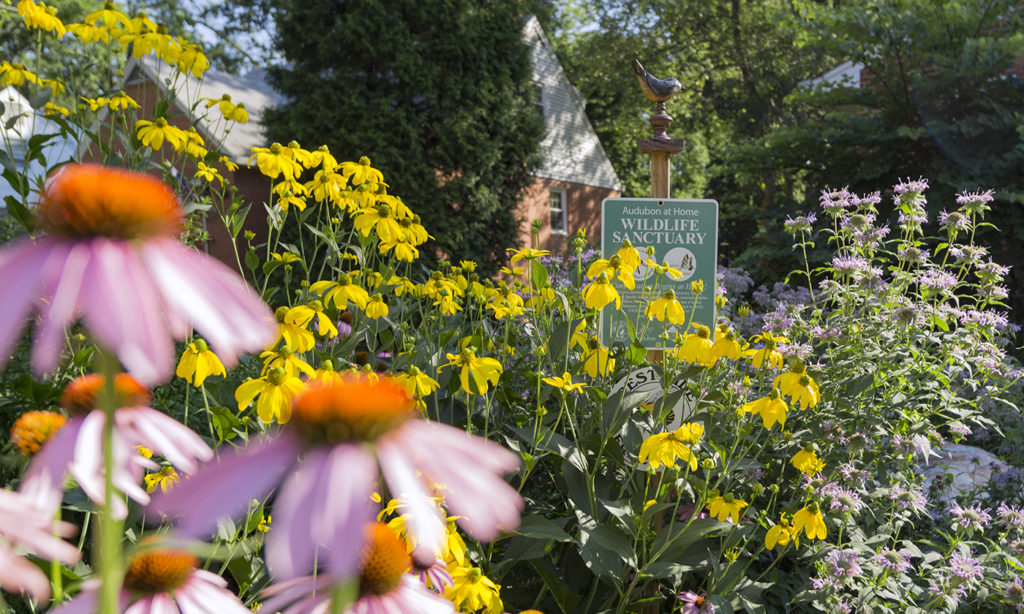Replacing grass with even a few plants native to your region can save insects and the ecosystems that depend on them.
By Tyler Wells Lynch, Yes! magazine, Feb 7, 2020
For years, Toni Genberg assumed a healthy garden was a healthy habitat. That’s how she approached the landscaping around her home in northern Virginia. On trips to the local gardening center, she would privilege aesthetics, buying whatever looked pretty, “which was typically ornamental or invasive plants,” she says. Then, in 2014, Genberg attended a talk by Doug Tallamy, a professor of entomology at the University of Delaware. “I learned I was actually starving our wildlife,” she says.
The problem, Tallamy explained, is with the picky diets of plant-eating insects. Most of these bugs—roughly 90%—eat and reproduce on only certain native plant species, specifically those with whom they share an evolutionary history. Without these carefully tuned adaptations of specific plants, insect populations suffer. And because bugs themselves are a key food source for birds, rodents, amphibians, and other critters, that dependence on natives—and the consequences of not having them—works its way up the food chain. Over time, landscapes that consist mainly of invasive or nonnative plants could become dead zones.

Read more at Yes! magazine

